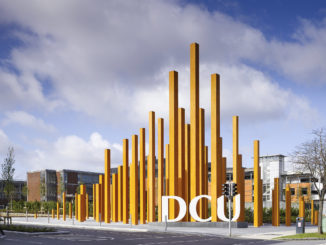
[dropcap]DCU’s[/dropcap] team of machine translation experts are transforming communication by helping people work through language barriers to create a world where communication and translation is easier.
The ADAPT Machine Translation (MT) team at DCU are renowned as one of the main players on the planet for carrying out theoretical and practical research in Machine Translation fields.
The team are currently exploring different areas of machine translation and are at the coalface of major developments which will change how we communicate.
The MT team is led by Professor Andy Way, who has been working in the area for over 30 years. “Considering the era of rapid globalization, translation is important because it facilitates multilingual communication and allows people from around the world to better understand one another culturally, economically and socially,” said Way.
Many international companies with businesses that span all over the world are benefiting from translation technologies to communicate more effectively both internally and with their customers.
ADAPT are also involved in various research projects funded by Government agencies and industries including TraMOOC, Translation for Massive Open Online Courses, Crisis MT, (MT engines for communication to/from crisis-affected communities for health-related content), and Machine translation system to support Medical Practitioners.
“Our team in the School of Computing work mostly on MT development and evaluation. Neural MT has made a big impression recently by producing translations that sound fluent and contain fewer errors related to the structure of words” said Joss Moorkens from the MT team.
In preparation for the Tokyo Olympics in 2020, many Japanese MT developers are working on systems that can translate speech on a user’s phone or tablet, allowing them to communicate with medical professionals or just to get around in Japan. In DCU, Longyue Wang is working on dialogue systems in Chinese-English and Chinese-Portuguese.
This work means that Speech Recognition and Speech-to-Text can be used together to create usable tools like the Microsoft Skype Translator. “There are plenty of unsolved problems with translations, such as problems with previously unseen or rarely-seen words and words that are off-topic from the training data”, according to Joss Moorkens.
Colleen Brady



